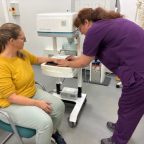
How to calculate your due date
Excitement, eagerness, and a hint of nervousness are common emotions if you’re newly pregnant. As you excitedly await the birth of your child, wouldn't it be great to have a dependable tool that can help you calculate your due date?
How to calculate your pregnancy due date
We know how eager you are to calculate the days before your newborn arrives, but first understanding how to determine your pregnancy due date is quite important so that you can have appropriate prenatal care and plan.
There are a few different ways to calculate your due date, and not one of them involves counting from the date you conceived! One of the most common methods for calculation is the last menstrual period (LMP) method. According to this method, you add 280 days (or 40 weeks) to the first day of your last menstrual cycle, and the resultant date is the expected delivery date.
It is important to note that this calculation assumes that your ovulation and conception occurred around the 14th day of your menstrual cycle. This is done as the first two weeks of pregnancy are counted even though you are not technically pregnant yet.
Another common method is to use ultrasound. Early pregnancy ultrasound in the first trimester can offer a precise estimate of the due date based on foetal measurements. These early ultrasounds are more accurate because they are less impacted by individual differences such as changes in menstrual and ovulation cycles. You can book an ultrasound at The Scan Clinic without a GP referral.
If you want a quick idea of when your due date is, you can use a pregnancy calculator.
Please remember that all the above methods provide an estimated date of delivery only and the actual delivery may take place one to two weeks before or after the estimated date.
Is a pregnancy calculator accurate?
These days, the internet is filled with pregnancy calculators which help you determine your due date with ease. But you may wonder just how accurate is a pregnancy calculator?”
Well, it depends. Most of these pregnancy calculators use the LMP method for determining delivery dates. Which also means that personal variances like menstrual and ovulation cycles can also bring about inaccuracies in final results. That being said, if you would like a quick estimation of when you are due, they are easy to use and can give you a guideline.
So, should you try one? Yes! Using a pregnancy calculator is super convenient because – you don’t have to do the mental maths! Some will even provide you with detailed information about foetal development and important pregnancy milestones.
Stages of pregnancy
If you are wondering ‘how many weeks pregnant am I?’ but are struggling to work it out, don’t worry. At your first early pregnancy scan, your sonographer will let you know your due date based on foetal measurements. But if you can’t wait, we recommend using a pregnancy calculator to get an estimate.
Let us help you understand the stages of pregnancy and what you can expect, making it easier for you determine your current stage:
First Trimester (Weeks 1-12): The foetus develops rapidly throughout the first trimester. Fatigue, morning sickness, breast soreness, frequent urination, and mood changes are all common symptoms.
Second Trimester (Weeks 13-27): During this time, many women get relief from those early pregnancy symptoms. The baby's movement becomes noticeable, and you may notice a bit of bump forming! Some women have reported improved vitality and better wellbeing during the second trimester.
Third Trimester (Weeks 28-40+): The baby continues to develop and gain weight in the third trimester. Physical aches and pains, as well as swelling of the feet and ankles, heartburn, and problems sleeping, may grow more severe. As the body prepares for labour, Braxton Hicks contractions may be a common complaint.
We understand how coping with these physical and emotional changes of pregnancy can be quite tiresome at times. Follow these tips to make life a little easier:
- Prioritise self care – take proper rest, have a balanced diet, engage in little exercise.
- Seek support – talk with your loved ones and form a support group to receive emotional support during pregnancy.
- Stress management – try nature walks, yoga, controlled breathing and meditation to calm your body and clear your mind.
Time to plan for the little one
Tracking your pregnancy allows you to keep track of your baby’s development. During your pregnancy journey, emotional and physical changes are normal. Seeking emotional support, giving yourself proper rest, and communicating openly with loved ones and healthcare experts can help to make your journey smooth. Remember that you are not alone on this path, and that help is always available.

















